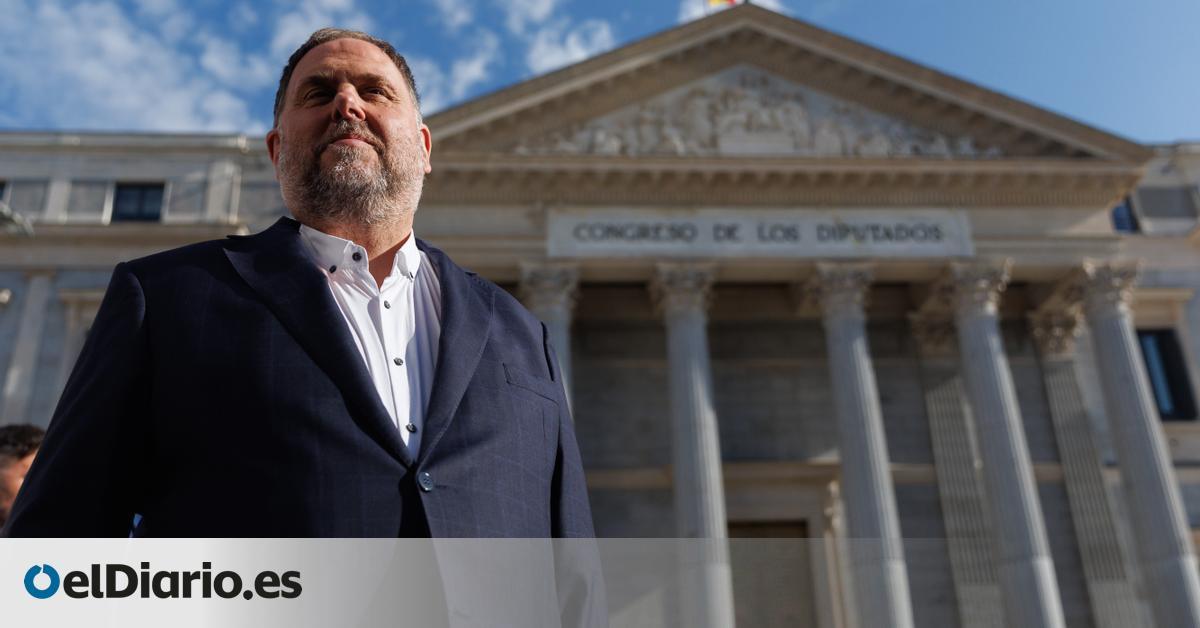
The ‘procés’ folder has definitively landed in the European Court of Human Rights (ECHR). The Strasbourg judges have begun to analyze the appeals of the nine former ministers and independence leaders convicted of sedition and embezzlement by the Supreme Court and, following the usual procedure, have called on the Government of Spain to make allegations against the violations of fundamental rights denounced by the sovereignists. The Executive has until January 12, 2024.
Did the Supreme Court violate the rights of the independentistas? Examination of the process case with a view to Strasbourg
Further
The request of the European judges to Spain means, first of all, that the magistrates see enough reasons to begin analyzing the case (Strasbourg usually admits a very small part of the demands that are formulated). In other words: the court has an interest in the Catalan case even though the convicts have already been pardoned and are free.
Furthermore, the questions that the judges urge the State Attorney’s Office to answer mean forcing the Government to establish a clear position on issues that the Executive has sought to circumvent, since any negotiation on a possible amnesty linked to the investiture has raised opposition. on the political and judicial right.
Strasbourg asks the Government if, as the pro-independence supporters maintain, the Supreme Court applied the crimes of sedition and embezzlement in an “expansive” or “unimaginable” manner when it convicted Oriol Junqueras and the rest of the pro-independence supporters. It is one of the key arguments that those convicted took to Europe, spurred by the dissenting votes of magistrates of the Constitutional Court who considered the sentence disproportionate.
They also request the robes from the Executive if, as the sovereigntists maintain, they were convicted for a “legitimate exercise” of their rights to freedom of association and expression, an issue on which the appeal of the convicted leaders who were neither councilors nor deputies pivots. , the former presidents of the ANC and Òmnium Jordi Sànchez and Jordi Cuixart.
If in May the court consulted Spain about complaints related to the preventive imprisonment of the sovereigntist leaders and the limitation of political rights that this entailed, now the questions are about the trial followed in the Supreme Court and the subsequent conviction. For example, if the sentence of more than nine years in prison violated their right to freedom or if the High Court convicted the independence supporters “without any evidence” and without having provided them with access to the summary during the process.
The ECtHR is the European body before which the pardoned prisoners of the process have hopes that their complaints of violation of fundamental rights that a majority of judges of the Supreme and Constitutional Courts have rejected will be accepted.
The calendar that Strasbourg sets for Spain is also devilish, since the Government has until January 12 to respond, deadlines similar to those that will pass to elect a new President of the Government and not return to the electoral repetition.
Last February the Supreme Court reviewed the sentences of the nine convicted as a result of the penal reform that eliminated the crime of sedition and modified that of embezzlement. This review was limited to disqualification sentences because prison sentences were pardoned by the Government in 2021.
In the case of Junqueras, the Supreme Court agreed to maintain the sentence of 13 years of disqualification, which means that he will not be able to aspire to any public office until 2031, by changing the crime of sedition to that of disobedience and maintaining the crime of embezzlement. For Romeva, Turull and Bassa, the court maintained the disqualification sentences for disobedience and embezzlement, ruling out a reduction in sentences by maintaining this last crime in its aggravated modality, with which they will remain disqualified until 2030.
For its part, the court convicted Sànchez and Cuixart for public disorder and Forcadell, Rull and Forn for disobedience. In their cases, this change in crimes meant the total extinction of their respective disqualification sentences.
Source: www.eldiario.es

